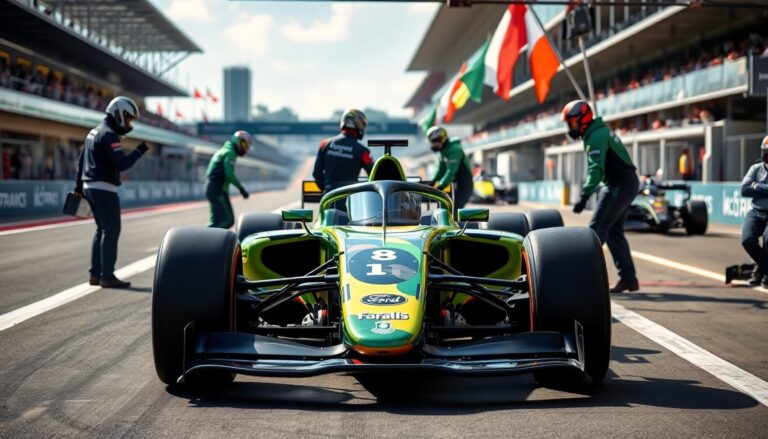Argomenti trattati
Formula 1, often regarded as the pinnacle of motorsport, has undergone significant transformations since its inception in 1950. From the roaring engines of the past to the current focus on innovation and sustainability, F1 has constantly evolved to meet the demands of its fans and the challenges of modern society. This article delves into the evolution of Formula 1, examining how the sport is adapting to the changing landscape of technology and environmental responsibility.
The rich history of Formula 1
Initially, Formula 1 was all about speed and performance. The early years showcased raw power, with teams pushing the limits of engineering to achieve the fastest lap times. Drivers became celebrities, and races were celebrated as grand spectacles. However, as the years progressed, it became evident that the sport needed to adapt to an increasingly aware audience. The rise of technology and environmental consciousness has prompted a significant shift in how Formula 1 operates.
Technological advancements
One of the most notable changes in Formula 1 has been the integration of advanced technologies. The introduction of hybrid power units in 2014 marked a turning point for the sport. These units combine a traditional internal combustion engine with an energy recovery system, allowing teams to harness energy generated during braking. This shift not only improves performance but also significantly reduces fuel consumption and emissions. As a result, Formula 1 is not just about speed but also about efficiency and sustainability.
The use of data analytics has also become crucial in the modern era of Formula 1. Teams now employ sophisticated algorithms to analyze vast amounts of data collected during races and practice sessions. This data-driven approach enables teams to make informed decisions regarding tire strategies, pit stops, and car adjustments. Such advancements have transformed the way teams operate, making the sport more competitive and engaging for fans.
Embracing sustainability
Recognizing the growing concern for the environment, Formula 1 has taken substantial steps towards sustainability. The sport’s governing body, the FIA, has set ambitious goals for the future, aiming for a net-zero carbon footprint by 2030. This initiative includes a commitment to using sustainable fuels and enhancing the efficiency of race operations.
Green initiatives and community engagement
In addition to technological advancements, Formula 1 is also focusing on community engagement and education. The F1 in Schools program aims to inspire young people to pursue careers in science, technology, engineering, and mathematics (STEM). By introducing the next generation to the principles of engineering and sustainability, Formula 1 hopes to foster a culture of innovation and responsibility.
Furthermore, the sport’s efforts to engage with local communities during races have been commendable. Initiatives such as promoting public transportation to events and minimizing waste at race venues showcase Formula 1’s commitment to sustainability. These measures not only reduce the environmental impact of races but also promote a sense of community among fans and participants.
The future of Formula 1
As Formula 1 continues to evolve, the balance between speed and sustainability will remain at the forefront of its agenda. The ongoing development of electric and hybrid technologies will play a vital role in shaping the future of the sport. With manufacturers investing heavily in electric vehicle technology, it is conceivable that future Formula 1 cars could incorporate fully electric powertrains, pushing the boundaries of performance while adhering to sustainability goals.
Moreover, the sport’s global reach provides a unique platform for promoting sustainability on a larger scale. With millions of fans tuning in from across the world, Formula 1 can influence public opinion and encourage sustainable practices beyond the racetrack.
Formula 1 is at a critical juncture in its history. The evolution from a sport defined solely by speed to one that embraces sustainability reflects the changing priorities of society. By leveraging technology and engaging with fans and communities, Formula 1 is not only securing its future but is also paving the way for a new era in motorsport.

